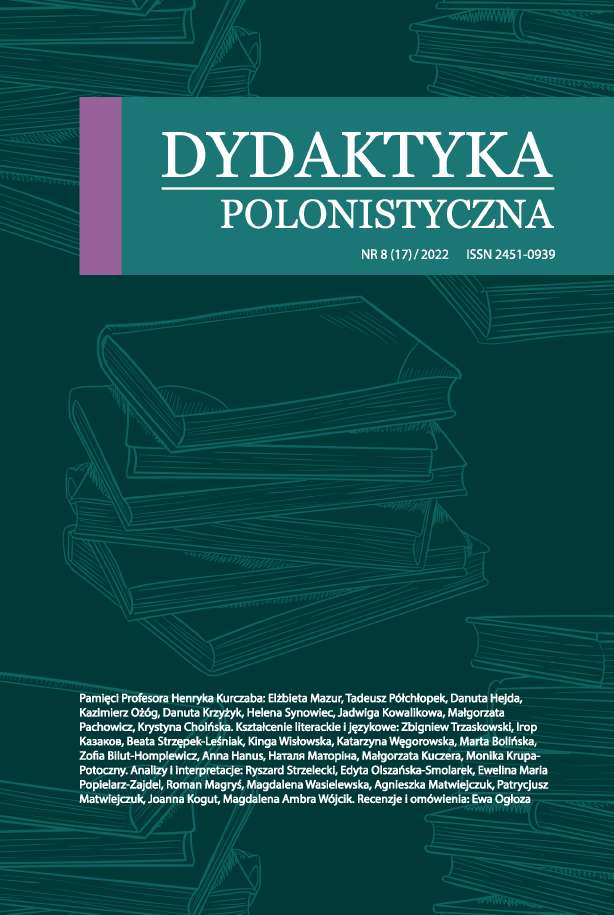MOOC for everyone. Navoica platform as an unlimited form of education (against the background of the distance learning history)
DOI:
https://doi.org/10.15584/dyd.pol.17.2022.12Keywords:
correspondence courses, distance learning, Navoica platform, accessibility, developmentAbstract
In the 21st century, distance learning has gained the status of a common educational practice. It ceased to be a support for traditional education and has become a form of autonomous schooling. Historically, e-education has gone through three stages, the first being teaching related to the beginning of distance learning (mainly the so-called correspondence courses), the second,connected with the development of radio and television, and, finally, the third relating to institutionalization and standardizing of e-learning as well as the factual application of the opportunities provided by new technologies, as well as a response to contemporary needs, requirements and expectations of recipients. The paper, in the spirit of the well-established theory, introduces – in the context of selected issues from the history of e-learning – the Polish national educational platform Navoica, which offers and provides online courses called MOOC (Massive Open Online Courses), administered by universities and educational institutions. Trainings at various levels of difficulty are intended for a wide range of recipients: from school students at different levels, through students and people interested in lifelong learning, to academic staff of universities (also literary scholars and linguists). Courses offered by the Navoica platform may be an invitation to an individual development, a way to raise or broaden qualifications, and they may also become a contribution to increasing opportunities within the labor market and boost people’s research and teaching competences.


